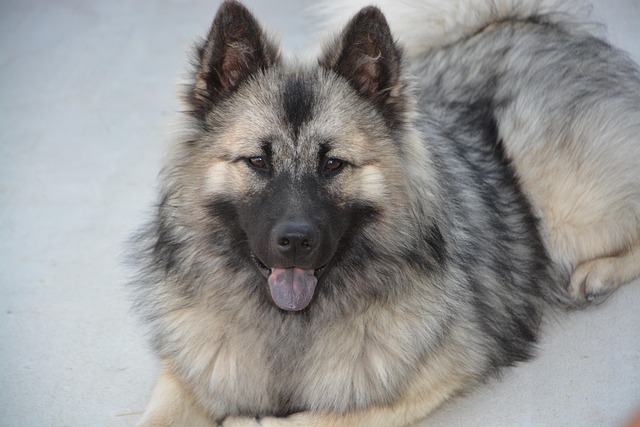
What is glaucoma in a dog?
You might notice your dog squinting more at mealtime or avoiding bright sunlight—these small changes could be early signs of a serious eye condition.
In the days spent with dogs, every subtle change touches our hearts. When one day, you suddenly discover that your lively and agile dog has a hunched back, worries and doubts will surely surge in your heart. Why do dogs bow their backs? There may be many unknown reasons behind this, and each reason is related to the health and happiness of dogs.
From a physiological perspective, pain is one of the common factors that cause dogs to arch their backs. The spinal and joint problems of dogs cannot be ignored, just like how humans suffer from lumbar disc herniation and arthritis, dogs may also face similar problems. For example, intervertebral disc disease is more common in some small dog breeds, such as dachshunds and beagle dogs. When a dog's intervertebral disc becomes diseased and the nucleus pulposus protrudes, compressing the surrounding nerve tissue, they will feel severe pain. In order to relieve this pain, the dog will unconsciously arch its back. This pain not only limits the movement of dogs, but also fills their eyes with pain and helplessness, making them feel heartbroken.
Arthritis is also an important cause of hunchback in dogs. As dogs age, joint cartilage gradually wears down, friction between joints increases, and inflammation follows. Especially for some large dogs, such as Golden Retrievers and Labrador Retrievers, due to their larger weight, the pressure on their joints is also greater, and the risk of developing arthritis is relatively high. The pain caused by arthritis can make dogs appear cautious when walking or standing, and arching their backs becomes an instinctive response to reduce joint pressure.
In addition to spinal and joint issues, abdominal pain in dogs may also lead to hunchback. Gastrointestinal discomfort, parasitic infections, urinary system diseases, etc. can all cause abdominal pain. When a dog accidentally eats spoiled food or is infected with intestinal parasites, the intestines and stomach will experience spasms and pain. In order to relieve the discomfort in the abdomen, the dog will arch its back in an attempt to reduce the pressure on the abdomen. Diseases of the urinary system, such as cystitis and urinary tract stones, can also cause abdominal pain in dogs, leading to symptoms of hunchback.

Psychological factors can also cause dogs to bow their backs. When dogs are in a state of extreme fear, tension, or anxiety, their bodies will unconsciously react. For example, when suddenly encountering loud noises such as thunder, firecrackers, or facing unfamiliar and threatening people and animals, dogs will bow their backs out of fear, trying to make their bodies look smaller in order to protect themselves. This hunchback is more of a psychological defense mechanism, reflecting the inner anxiety and fear of dogs.
Environmental factors should not be underestimated. If dogs live in cold and humid environments for a long time, their joints and muscles are easily affected. Cold can cause blood vessels to contract, blood circulation to be poor, leading to joint stiffness and pain; Moisture can easily breed bacteria and fungi, leading to skin and joint diseases. In such an environment, dogs may also experience hunchback in order to alleviate physical discomfort.
When we notice a dog's hunchback, we must give it enough attention. Firstly, it is important to carefully observe other symptoms of the dog, such as decreased appetite, mental fatigue, vomiting, diarrhea, etc. These symptoms can help us preliminarily determine the cause of the dog's hunchback. If a dog experiences severe pain reactions, such as barking or refusing to touch its abdomen, in addition to arching its back, it must be taken to a pet hospital immediately. Doctors will use professional methods such as X-rays, B-ultrasound, and blood tests to accurately assess the condition of dogs and provide corresponding treatment plans.
In daily life, we need to take good care of the health of our dogs. Providing dogs with nutritionally balanced food, ensuring they consume sufficient nutrients such as calcium and vitamins, helps promote healthy bone and joint development. Regularly deworming dogs both internally and externally to prevent parasitic infections. At the same time, it is important to create a warm, dry, and comfortable living environment for dogs, to prevent them from being affected by cold and moisture.
Dog hunchback is a phenomenon that requires our high attention, and the reasons behind it may be complex and diverse. As owners of dogs, we should observe and care for them with love and patience. When a dog has a hunchback, don't panic, identify the cause in a timely manner and take the correct measures to help them get rid of the pain. Because dogs provide us with endless companionship and loyalty, all we can do is to use our wholehearted love to protect their health and happiness, allowing them to spend every warm and beautiful day under our care.

You might notice your dog squinting more at mealtime or avoiding bright sunlight—these small changes could be early signs of a serious eye condition.

Let’s set the scene: It’s a sweltering Phoenix afternoon—105°F outside—and you rushed your 2-year-old Lab mix, Cooper, on a quick walk to “get it over with.”

Let’s get real: You’re in your Miami apartment, watching your 3-year-old Corgi, Loki, struggle to climb the stairs to your second-floor unit.

Many dog owners brush off occasional scratching as just “dog behavior,” but persistent itching often signals something more—like a food allergy.

You might first notice your dog scratching more than usual—chewing at their paws until the fur looks thin, or rubbing their face against the couch nonstop.

Let’s be real: You’re standing in your Chicago apartment, watching your 3-year-old Beagle, Max, huff and puff just to climb onto the couch.